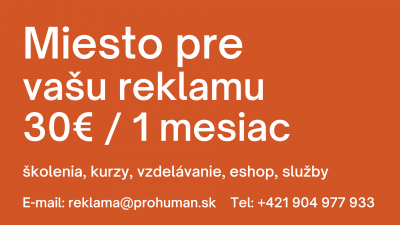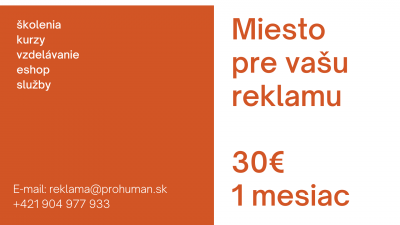feb
10
2025
Resilience as a tool for coping with contemporary challenges
Abstrakt: Reziliencia predstavuje kľúčový koncept v psychológii, sociológii, ekológii a ďalších interdisciplinárnych oblastiach, pričom zdôrazňuje schopnosť jednotlivcov, komunít a systémov odolávať, prispôsobiť sa a zotaviť sa z nepriaznivých situácií. Tento článok sa zameriava na definovanie reziliencie, identifikáciu kľúčových mechanizmov, ktoré ju podporujú, a na praktické príklady jej uplatnenia. Osobitnú pozornosť venuje historickým a kultúrnym vzorom, ako sú domorodé komunity, židovská komunita či jednotlivci ako Nelson Mandela a Malala Yousafzai, ktorí stelesňujú ideu reziliencie na globálnej úrovni. Ďalej skúmame, ako môžu jednotlivci aj spoločnosti rozvíjať odolnosť prostredníctvom kultúrneho dedičstva, vzdelania, sociálnych väzieb a adaptabilných stratégií. Na záver poskytneme odporúčania pre implementáciu princípov rezilencie v praxi s dôrazom na prevenciu, zvládanie kríz a posilnenie schopnosti obnovy. Štúdia vychádza z dostupnej literatúry a príkladov dobrej praxe, pričom zdôrazňuje význam tohto konceptu pre trvalo udržateľný rozvoj a riešenie súčasných globálnych výziev.
Kľúčové slová: reziliencia, odolnosť, adaptabilita, individuálna reziliencia, kolektívna reziliencia, Nelson Mandela, Malala Yousafzai, židovská komunita, kultúrna identita, vzdelanie, kríza, obnova, psychická odolnosť, príklady dobrej praxe, trvalo udržateľný rozvoj.
Abstract: Resilience represents a key concept in psychology, sociology, ecology, and other interdisciplinary fields, emphasizing the ability of individuals, communities, and systems to withstand, adapt to, and recover from adverse situations. This article focuses on defining resilience, identifying the key mechanisms that support it, and providing practical examples of its application. Special attention is given to historical and cultural models, such as Indigenous communities, the Jewish community, and individuals like Nelson Mandela and Malala Yousafzai, who embody the idea of resilience on a global scale. Furthermore, it explores how individuals and societies can develop resilience through cultural heritage, education, social connections, and adaptive strategies. The article concludes with recommendations for implementing resilience principles in practice, highlighting their importance in crisis prevention, management, and recovery, as well as in strengthening overall adaptability. The study draws from available literature and examples of best practices, emphasizing the relevance of this concept for sustainable development and addressing contemporary global challenges.
Keywords: Resilience, adaptability, individual resilience, collective resilience, Nelson Mandela, Malala Yousafzai, Jewish community, cultural identity, education, crisis, recovery, psychological resilience, best practices, sustainable development.

























